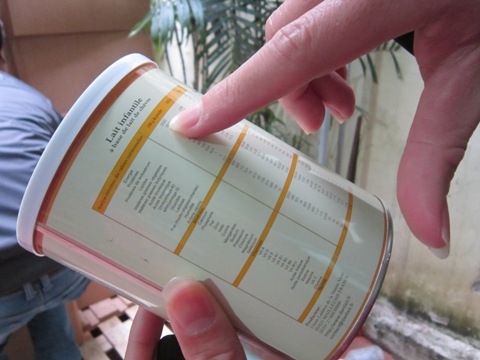Vietnam vows to restrain prices to curb inflation
Vietnam vows to restrain prices to curb inflation
The price increases scheduled for public services and essential goods are believed to trigger new price increase waves.

Current factors back high inflation
The Academy of Social Sciences of Vietnam has given a forecast that the inflation rate in 2013 would be between 7.32 percent and 8.84 percent. Meanwhile, ANZ Bank has predicted that the inflation rate would be 8-10 percent, which is not too different from that predicted by VEPR, an economic and policy research center under the Hanoi National University.
VEPR said the only factor that helps curb the inflation – the food price decreases – would not be maintained in 2013. Meanwhile, a series of factors that back the high inflation have turned up. These include the planned basic salary increase, the healthcare service increase, electricity price increase and the increases of some kinds of fees.
Besides, the high inflation may occur on the possible dong/dollar exchange rate adjustment.
According to the National Finance Supervision Council, if the Vietnam dong depreciates by three percent, the consumer price index (CPI) would increase by 0.3-0.4 percent further. If the electricity price increases by 10 percent like it did in 2012, the CPI would increase by 0.4 percent, and if the petrol price increases by five percent, the CPI would increase by 0.1-0.15 percent.
If the prices of all the three essential goods increase at the same time, this would lead to the CPI increase of 0.8-1 percent.
Therefore, economists have warned that the government needs to thoroughly consider when to adjust the essential goods prices, or the price increases would have big impacts on the expected inflation.
Dr. Vu Dinh Anh, a well-known Vietnamese economist, said he cannot see any abnormal things in the first two months of the year. However, he has warned that the biggest challenges for the inflation this year are the huge sum of money to be pumped into circulation to serve the restructuring and the implementation of the loosened monetary policies to ensure high economic growth rate in 2012.
It may happen that the cash flow, together with the electricity, petrol price increases would lead to a very high inflation rate.
Price stabilization packages necessary
The government has agreed to the establishment of an inter-ministerial price management taskforce, in charge of ensuring the better cooperation among ministries and branches in controlling prices and the inflation.
The establishment of the taskforce and its operation mechanism would be instructed by Deputy Prime Minister Vu Van Ninh.
Emphasizing the importance of the works to control prices, the National Finance Supervision Council has proposed the government to strengthen the cooperation of management agencies to set up a “price stabilization package.” If so, the price increases would be made at reasonable moments in order to avoid possible bad influences to the national economy and people’s lives.
Dr. Nguyen Dinh Cung also thinks that it’s necessary to set up an inter-ministerial taskforce at this moment. Though the plans to raise the prices of essential goods and public services have been announced, it would still be necessary to think about the moments to implement the plans, or this would cause the macroeconomic uncertainties.
Cung has suggested a solution for the long term that Vietnam needs to set up a market supervision council, the agency which would be independent from government agencies.
In September 2012, the CPI unexpected increased sharply by 2.2 percent, which went beyond the expectations of policy makers and experts as well. It was because the healthcare services were raised at the same time in 32 localities at the same time, while the tuitions were raised in 42 localities.
vietnamnet

























